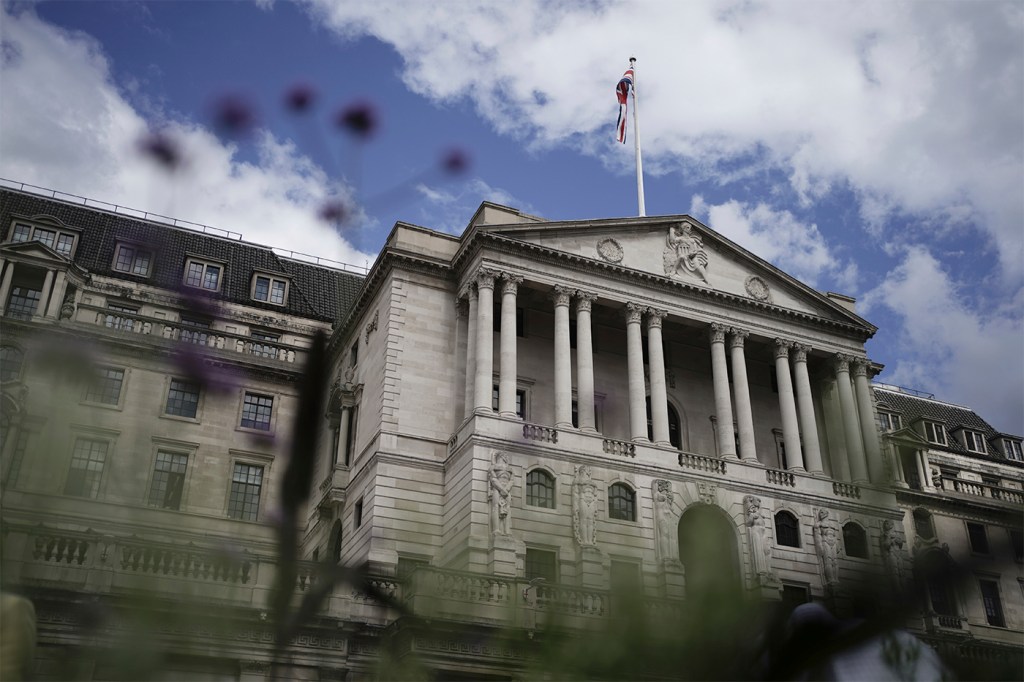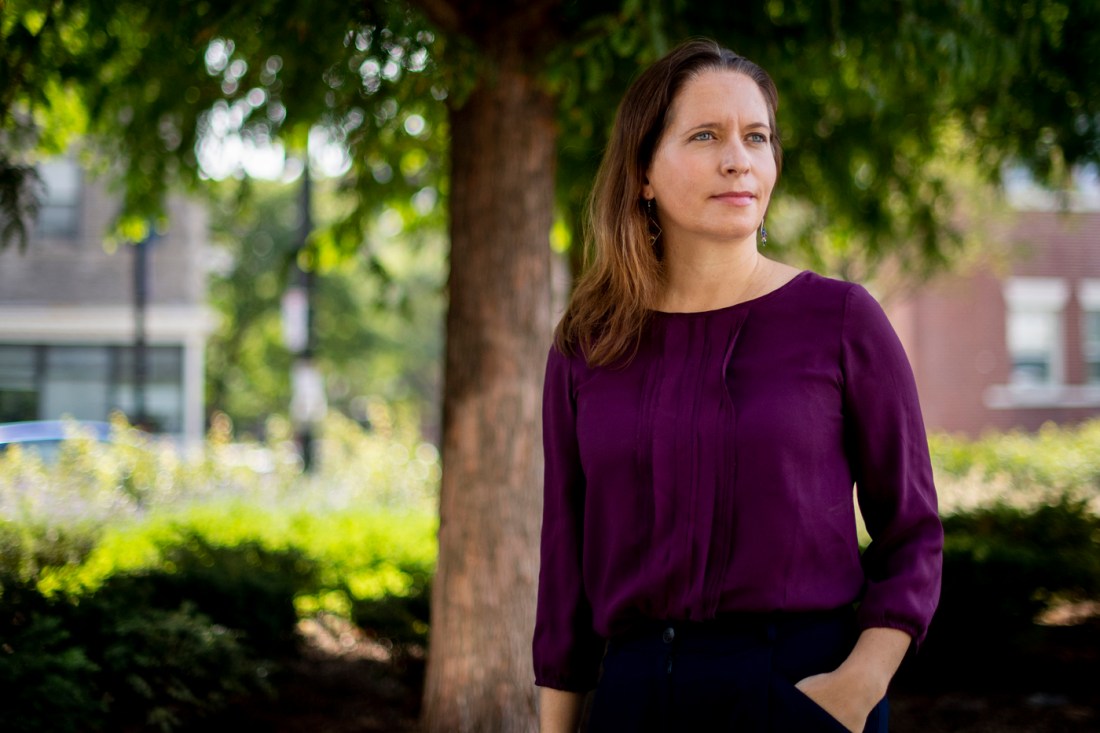Can central banks fight climate change? A Northeastern researcher explains role in promoting sustainable
financial practices

When you think of ways to reduce carbon emissions and cool a scorching planet, involving the U.S. Federal Reserve Board may not immediately spring to mind.
But Jennie C. Stephens, dean’s professor of sustainability science and policy at Northeastern University, says central banks play a pivotal role in determining whether society continues to invest in fossil fuels or green energy.
“I’ve been studying how society is responding to the climate crisis for my whole career, for 30 years,” Stephens says.
“At the beginning, I was focused more on technology and the science of understanding it, but increasingly I have realized that there’s no technology that’s going to fix this. This is a social, economic and political issue.”
Stephens teamed up with Martin Sokol, an economic geographer and expert on central banks at Trinity College Dublin, to write a paper on what financial innovations and “creative disruptions” can be undertaken by central banks including the Federal Reserve, European Central Bank and the Bank of England to ensure long-term stability.
“Central banks regulate and set the conditions for our financial systems and banking more generally and how money flows,” says Stephens, whose work was published in Climate and Development. “In economies around the world (the banks) are really an important lever, and one that hasn’t gotten a lot of attention.”
Currently financial institutions are set up to maintain stability in the short run, which means that power players such as fossil fuel producers and corporate interests exert a huge influence, Stephens says.

The threat of a ‘green swan’
The news this month that 2023 was the Earth’s hottest year on record points to the need for real change, she says.
“We need to phase out fossil fuels,” Stephens says. “That needs to be the priority. It’s not going to happen until there are some changes in the financial system, because the fossil fuel companies have no plans to stop extracting and exploring fossil fuels.”
Look at the U.N. climate talks last month in Dubai, says Stephens, who is also a climate justice fellow at the Harvard-Radcliffe Institute for Advanced Study. “It was basically run by fossil fuel interests.”
Featured Posts
The Associated Press said 1,300 employees of fossil fuel companies registered to attend the talks, which the AP said was more than three times the number found in its analysis the year before.
“Fossil fuel use and carbon emissions are continuing to increase globally. From the climate perspective, we are not making progress at all. We need a big transformation. We need structural social change,” Stephens says.
Without it, floods, fires, extreme heat events and extreme weather events will continue to get worse and threaten food and supply chains as well as homes and businesses, she says.
“We could have a major financial collapse as a result of this instability due to the climate crisis,” Stephens says.
She says economists have dubbed this type of event a “green swan.” The term is a nod to black swan events, unpredictable crises with potentially severe impacts on society that some say could have been avoided.
Some climate chaos and financial instability are inevitable without addressing climate change, Stephens says.
“Shouldn’t the financial system be managed differently to acknowledge this risk?”
Green banking solutions
Stephens say central banks could be building a monetary toolbox for climate justice that includes:
- Buying large quantities of “green” bonds while phasing out purchases of assets related to the fossil fuel industry
- Introducing preferential interest rates on “green” commercial loans
- Creating a new currency, like carbon coins, to be used for ecological projects
- Purchasing the assets of dirty fossil fuel assets and closing their operations
Transitioning to a central banking system that puts the health of the planet and humans first will be disruptive — will require reduced production of goods and different kinds of jobs — but “ it could be so much better than the alternative,” Stephens says.
She says this disruption is an opportunity to protect workers and their families and people in low-income countries bearing the brunt of climate change. Another financial innovation means coming up with a type of universal income strategy that funnels electronically created money directly into people’s bank accounts.
It could also mean offering no interest or even negative interest loans for low-income households to replace fossil fuel reliance with solar power, Stephens says.
Pushback is inevitable, she says. But “desperate times could provide a window of opportunity for investing in these kinds of radical shifts.”
“To effectively address the worsening injustices of the climate crisis and the growing precarity of the current economy, we do need to move away from the current form of financialized capitalism that concentrates wealth and power through exploitation and extraction,” Stephens says.
“Because central banks have so much influence over the economy, changes in the tools central banks use to promote stability are essential for this,” she says.
Stephens, who conducted this research while on sabbatical at Trinity College Dublin last year, says “we can try to respond to the climate crisis in ways that perpetuate all of the inequities and disparities.”
“Or we can respond to the climate crisis in ways that prioritize justice and actually make investments in the communities and for the people who are most vulnerable and already have been marginalized historically,” Stephens says. “That’s the opportunity ahead of us.”










